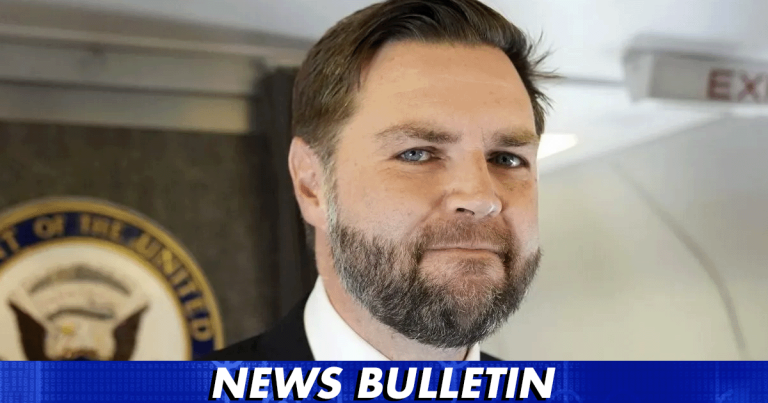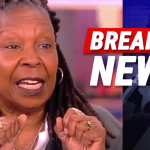
In a world where politicians typically eye their next job before they’ve warmed the seat of their current one, witnessing actual humility feels like spotting a unicorn at a county fair. The Washington ladder-climbing manual practically mandates that ambitious officials begin plotting their presidential runs while still practicing their current office’s oath of allegiance in front of the bathroom mirror.
American political history is littered with the wreckage of premature coronations and entitled aspirations. Remember when Hillary Clinton’s 2016 campaign seemingly operated on the premise that the presidency was simply her turn? Or how about the countless vice presidents who assumed the second-highest office automatically qualified them for the top job? The quiet confidence of waiting one’s turn and earning advancement through merit has become as outdated as rotary phones and civil political discourse.
Yet Vice President JD Vance appears to be taking a refreshingly different approach to his political future, despite stellar poll numbers that would tempt most politicians to start measuring the Oval Office for drapes.
From ‘The Hill’:
“My attitude is, if I do end up running in 2028, I’m not entitled to it,” Vance continued. “But I really think that Marco and I can get a lot done together over the next few years. That’s how I think about our friendship and our relationship. And I would be shocked if he thought about it any differently.”
The Humility of High Office
Vance’s candid acknowledgment that he isn’t “entitled” to a 2028 presidential bid represents a stark departure from the typical Washington playbook. The Vice President made these remarks during an NBC News interview while traveling with Secretary of State Marco Rubio to the Vatican last week, directly addressing speculation about potential rivalry between the two Trump administration officials.
Far from displaying the frosty relationship many media outlets seemed eager to manufacture, Vance revealed he speaks with Rubio “five times a day” and expressed his deep “trust and confidence” in the Secretary of State. This level of collegiality between two potential presidential contenders defies the cutthroat narrative we’ve come to expect from Washington politics.
“I can just feel it — the media is going to start telling some story of me versus Marco or me having a rivalry with Marco,” Vance told NBC News, demonstrating his awareness of how political relationships are typically portrayed.
Numbers Don’t Lie, But They Don’t Tell the Whole Story
What makes Vance’s humility all the more remarkable is that he has every statistical reason to feel confident about his political future. According to a May poll conducted by J.L. Partners, Vance enjoys a commanding 46% support among registered Republican voters for the 2028 GOP nomination – a number that would have most politicians quietly ordering inauguration souvenirs.
No other potential candidate comes close to matching Vance’s support. Donald Trump Jr. registered a distant second at 14%, while Florida Governor Ron DeSantis garnered just 8%. Vivek Ramaswamy, currently running for Ohio governor, received 7% support. Notably, Marco Rubio – the man Vance speaks with “five times a day” – polled at 6%, alongside Senator Ted Cruz.
With numbers like these, Vance could easily adopt an heir-apparent posture. Instead, he’s focused on his current job and building productive working relationships – a refreshing approach that stands in stark contrast to the entitlement mentality that has infected much of modern politics.
Tomorrow’s Leaders Serving Today
The Trump administration has assembled what many conservatives consider a dream team of next-generation leadership. Beyond Vance and Rubio, figures like Mike Waltz (recently nominated as UN Ambassador) represent a depth of conservative talent that hasn’t been seen in decades.
President Trump himself has declined to endorse any particular successor, telling Time magazine he won’t be looking into “loopholes” to run for a third term despite occasional joking references to the possibility. When asked about Vance specifically, Trump called him “very capable” but suggested it was premature to back any 2028 candidate.
This restraint from Trump allows his administration officials to focus on governance rather than jockeying for position – exactly what we’re seeing with Vance’s team-first approach. The Vice President has previously stated that “it’s too early” for Trump to back someone for 2028, showing a patience rarely seen in modern politics.
Meanwhile, the Democratic field for 2028 appears much less settled, with Kamala Harris leading hypothetical polls at just 30% – a sharp contrast to the clearer Republican picture.
Key Takeaways:
- Vance demonstrates rare political humility despite commanding 46% support in early 2028 presidential polls
- The Vice President maintains a strong working relationship with potential rival Marco Rubio, speaking “five times a day”
- Trump’s administration has cultivated a strong bench of conservative leadership, avoiding premature endorsements for 2028
Sources: The Hill, The Economic Times


